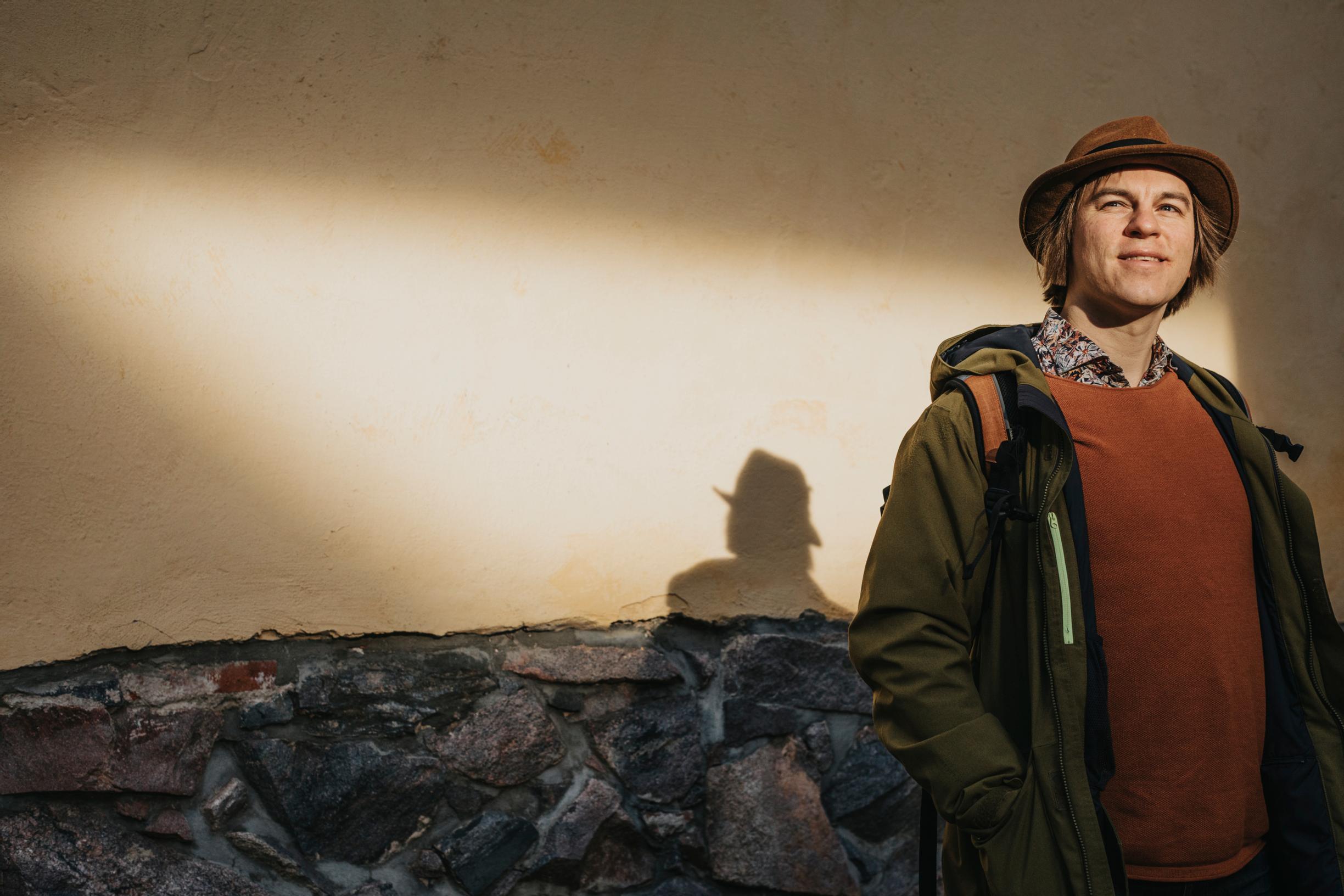
Finns are allowed to be in a bad mood—and that’s why they’re happy, says philosopher Frank Martela
Finns aren't interested in status or a show home, at least not as much as others. And if they lose their wallet, they believe they’ll get it back. Philosopher Frank Martela shares five reasons why the people of this remote corner of Europe are so happy.
A Finn spends half the year in near darkness, with the sun barely rising during winter. They prefer solo skiing in the forest, avoid small talk, and believe it is better to be safe than sorry. Can Finns truly be content, one might wonder. And yet, Finland has topped the list of the world’s happiest countries for years.
Philosopher and Aalto University Associate Professor Frank Martela is known in Finland for his ideas on what makes a good life. Here are his five reasons why Finland consistently ranks among the world’s happiest nations.
1. Finns are less unhappy than others
Finnish happiness primarily stems from our institutions, says Martela. For example, we have a well-functioning democracy, free elections, a free press, and very little corruption, he notes.
“At the same time, Finland offers fairly comprehensive welfare services, like nearly free healthcare, unemployment benefits, and maternity or paternity leave.”
“Finnish happiness is boosted by the absence of constant comparisons over who’s doing better than you.”
According to Martela, thanks to policies like these, people in Finland tend to worry less than those in many other countries.
“It’s not that Finland has more happy people than elsewhere—there are simply fewer deeply unhappy ones, because society here does a better job of looking after them than in many other places.”
2. Finns don't care about status, comparisons, or show homes
A bigger SUV, a flashier designer bag, whiter teeth, a more impressive job title.
According to Martela, those kinds of things mean a little less to Finns than to many other people. Overall, we don’t compare ourselves to others as much.
“We’re not as sensitive to status hierarchies—how we’re supposed to look, dress, or who has the flashiest car. Finns are happier because we’re not constantly comparing who’s doing better than us.”
Our homes are for living, not for show. Martela believes that Finns might have more courage to create spaces that truly suit their own needs.
He believes that status matters less here because the culture has long been quite egalitarian. Finland doesn’t have the same class-based history or hierarchies as many other nations, so we’re used to the idea that everyone’s in the same boat.


3. Finns are in nature even in the city
When asked about what makes them happy, Finns often bring up nature and spending time outdoors, says Martela. Studies also show that being near forests, parks, or water increases happiness.
But connecting with nature isn’t just for rural dwellers.
“Finland is a place where it’s easy for many people to get out into nature. Our cities aren’t too crowded.”
Martela himself lives fairly close to downtown Helsinki. Even so, a five-minute walk brings him to Central Park, which stretches nearly ten kilometers through the city.
“It’s great to ski there in winter or walk or jog in summer. Surrounded by forest, everyday worries fade, and you can simply listen to the wind in the trees.”
Finland often ranks first worldwide for trust in strangers.
4. A Finn believes they’ll get their lost wallet back
This has happened to Martela himself and to many of his friends: a wallet left on a restaurant table or a laptop forgotten on a train usually finds its way back to its owner.
Not only do they get it back, they truly expect to.
Finland is often at the top globally for the level of trust placed in strangers, Martela notes.
“We Finns feel we’re all in the same boat, which creates a society built on strong trust in people we don’t know. That trust also plays a role in our happiness.”
That trust also surfaces when Martela reflects on what makes him happy in Finland. He says it’s a relatively safe country where children can roam about freely.
“My American colleagues can’t imagine a seven- or eight-year-old going to school or activities alone. Here, it’s perfectly normal, and we feel comfortable giving children that freedom.”


5. In Finland, you can be in a bad mood
If your car won’t start on Monday morning and your child is sick, nobody in Finland expects you to stroll into work with a big smile.
Martela spent a year and a half in the United States. He says that if someone there asks, how are you doing, you’re expected to answer, I’m doing great—regardless of how you really feel. Admitting you’re a little depressed or anxious would be considered inappropriate, he adds.
“In Finland, being in a bad mood is more acceptable than in many other places. We have more room to openly say we’re not feeling our best.”
In the end, Martela says that’s a good thing for our overall happiness.
“If negative emotions are suppressed, they build up and grow. Sharing them helps us process them and move on.”
But is happiness permanent?
Martela predicts that in ten or fifteen years, Finns will be roughly as happy as they are now. According to the Happiness Report, Finnish happiness hasn’t shifted much in the last decade. Our society is that stable.
Yet there’s no guarantee happiness will last forever. Major global changes can have a big impact. If Europe can’t maintain peace, people’s well-being will suffer dramatically, says Martela. Meanwhile, social services have been reduced in Finland.
“If enough is cut from basic services, sooner or later it will show in people’s happiness.”
Martela is particularly concerned about Finnish youth, who increasingly feel lonely. He suspects smartphones and social media play a role, as screen time can’t replace in-person contact.
“I believe much of our well-being and happiness comes from real-life encounters—being in the same place and doing things together.”




